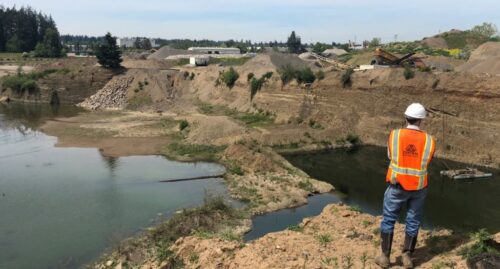SITE INVESTIGATION AND GEOTECHNICAL SURVEYS IN ENGINEERING
Site Investigation and Geotechnical Surveys in Engineering
Introduction
Site investigation and geotechnical surveys are integral components of any engineering project, whether it’s constructing a building, a bridge, a highway, or any other infrastructure. These surveys provide crucial information about the subsurface conditions, soil properties, and geological characteristics of a site. This article explores the significance of site investigation and geotechnical surveys in engineering projects and highlights key points to consider.
1. Understanding the Site
The first and foremost objective of site investigation is to gain a comprehensive understanding of the site. This involves identifying the geological formations, soil types, groundwater levels, and any potential hazards such as landslides or sinkholes. Such knowledge is essential for designing foundations and ensuring the safety and stability of structures.
2. Foundation Design
One of the primary reasons for conducting geotechnical surveys is to determine the suitable foundation type for a structure. Different soil types require different foundation designs. For example, clay soils may require deeper and wider footings compared to sandy soils. Engineers need accurate data from these surveys to make informed decisions.
3. Risk Mitigation
Geotechnical surveys help in assessing and mitigating risks associated with the site. By identifying potential issues such as soil liquefaction during earthquakes or soil erosion, engineers can implement necessary measures to safeguard the project and its surroundings.
4. Construction Planning and Cost Estimation
Site investigations and geotechnical surveys are essential for planning construction activities. Knowing the soil properties and subsurface conditions enables project managers to estimate costs accurately, allocate resources efficiently, and schedule work effectively.
5. Environmental Impact Assessment
In many cases, engineering projects must undergo environmental impact assessments. These assessments take into account the ecological and geological characteristics of the site. The data from geotechnical surveys contribute to these assessments, ensuring that the project complies with environmental regulations.
6. Material Selection
Understanding the soil composition is crucial when selecting construction materials. Some soils may be corrosive or expand when exposed to moisture, affecting the choice of materials and construction methods. Geotechnical surveys provide vital information for material selection.
7. Monitoring and Maintenance
Site investigation doesn’t end once construction begins. Engineers continue to monitor soil conditions and make necessary adjustments during the construction phase and throughout the lifespan of the structure. Geotechnical surveys serve as a reference point for ongoing maintenance and remedial actions.
8. Legal and Regulatory Compliance
Compliance with local regulations and building codes is paramount in any engineering project. Geotechnical data is often required as part of the documentation submitted for permitting. Accurate surveys help ensure that the project meets all legal requirements.
Conclusion
Site investigation and geotechnical surveys are indispensable tools in engineering. They provide critical data that influences every aspect of a project, from its design and construction to its long-term maintenance and compliance with regulations. Engineers and project stakeholders must recognize the importance of investing in thorough site investigations to ensure the success and safety of infrastructure projects. In the world of engineering, knowledge of what lies beneath the surface can make all the difference.


